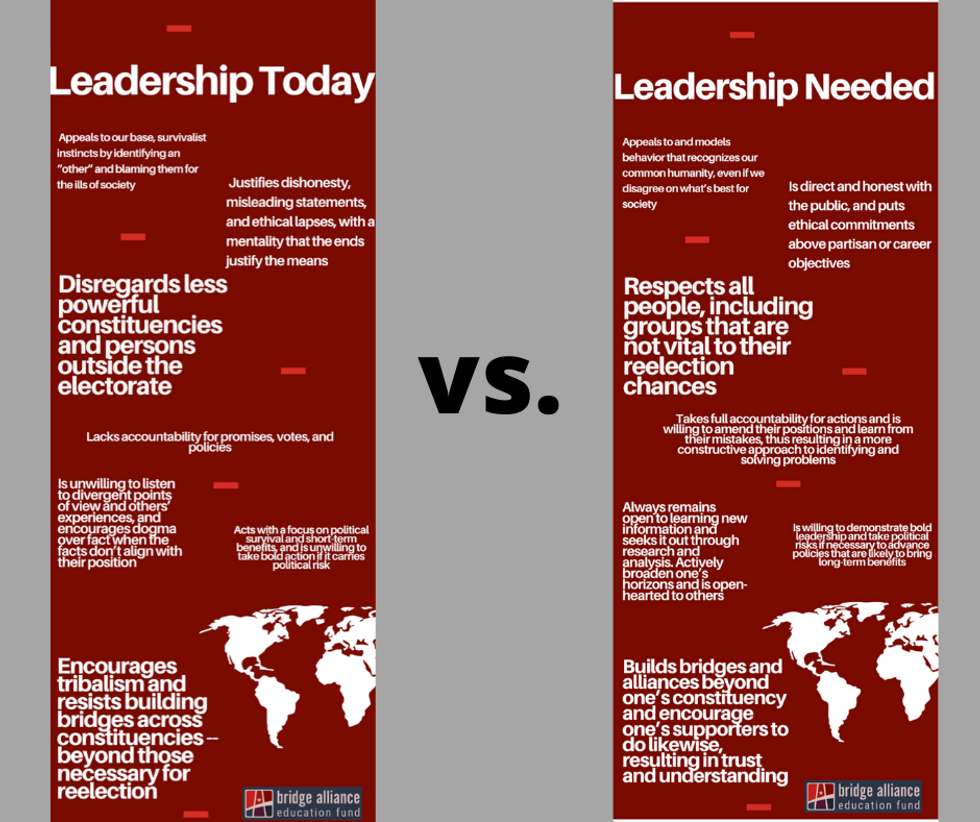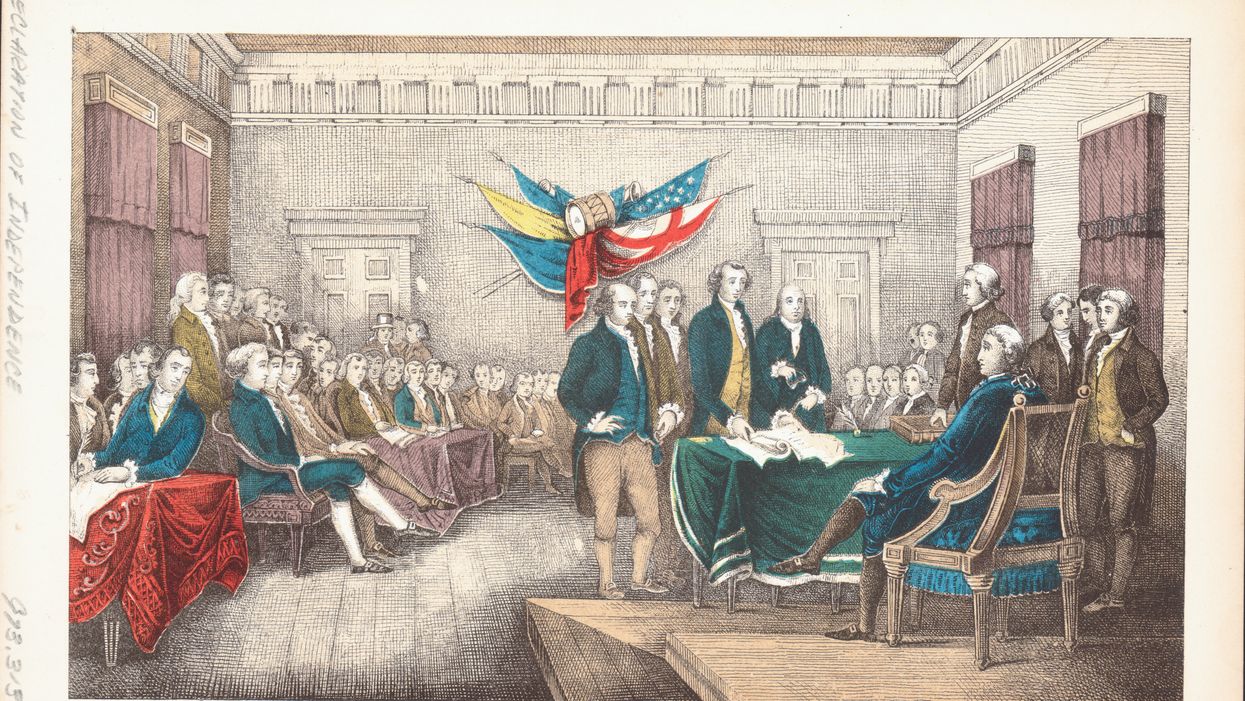Nevins is a co-founder of the Bridge Alliance, a coalition of 100 organizations seeking to strengthen democracy. (Disclosure: The Bridge Alliance Education Fund is a funder of The Fulcrum.)
We are less than a year away from the next presidential election and the dysfunction will surely be as great, or greater, than it has been in the past. Does anyone really believe any of the candidates will solve our problems? Unlikely.
The media usually overplays the importance of the outcome in determining the future direction of our country. But our national elections merely validate a leadership ideal and process that is systematically flawed. The focus of our elections must change from the desire for charismatic leaders to a focus on an in-depth national dialogue that explores the complexity of the issues that divide us.
Thomas Jefferson recognized that democracy was born from discourse and discussion, and that the resulting discussion would overflow with differing perspectives and opinions. Our Framers were a visionary group of men who believed ideological differences would ultimately lead to inquiry, and inquiry to truth. In their writings to each other, they discussed how civil discourse and critical thought were essential for their grand experiment in democracy — notwithstanding their tendency to demonize each other through anonymous writings as they jockeyed for political dominance. It is their collective vision that has stood the test of 243 years.
It is time for the vision of Jefferson and the Framers to be realized. "E pluribus unum" (out of many, one) must become the standard we demand of our candidates and of our elected officials. We must demand a new politics that allows room for people from different parties and with different beliefs to sit around a table and make the tough decisions everyone knows need to be made. And we need to trust in the intentions of the loyal opposition to be a differing perspective for the public good. For this to happen, though, we need a new type of leadership.
The Bridge Alliance is a group of approximately 100 organizations working toward healthy self-governance in our country. As part of this work, we believe in uplifting the role of citizens to participate and demand better leadership from all sides of the political spectrum.
Along with many of our members, we are starting a dialogue on the type of leadership We The People would like to see, and we are engaging citizens in this dialogue. Members like National Conversation Project, National Institute of Civil Discourse, Living Room Conversations, Essential Partners, Leadership Now and others are teaching new leadership models and demonstrating how to practice new leadership skills in our everyday lives. Review the list below and ask yourself, "How can we demand more from our leaders?"
 "How can we demand more from our leaders?," asks David L. Nevins. Courtesy: Bridge Alliance Education Fund
"How can we demand more from our leaders?," asks David L. Nevins. Courtesy: Bridge Alliance Education Fund
If you share my concern that our leadership in Washington hasn't shown the civility and critical thinking needed to address the serious problems facing our country, please join me and others to create a grassroots effort to activate and generate the positive changes our country so profoundly needs.
Like many of my friends and associates, you might believe the system can never change. I say that our Founding Fathers were considered to be idealists by some, and that the Constitution they designed still endures more than two centuries later. We too can make lasting change. We can and must build upon their brilliant and exemplary framework to achieve their collective vision.




















Trump & Hegseth gave Mark Kelly a huge 2028 gift